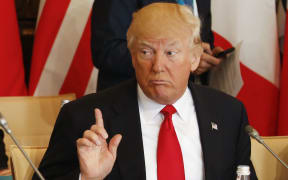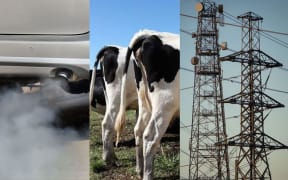New Zealand must make big changes to its Emissions Trading Scheme to even come close to meeting its Paris Agreement climate requirements, a consultants' report says.

Photo: 123RF
New Zealand pledged in the Paris Agreement to limit greenhouse gas emissions by 11 percent compared to 1990 levels by 2030 - but emissions in 2015 were 24.1 percent higher than 1990 levels.
One way of offsetting actual emissions would be to purchase offshore carbon credits, for example in Colombia, which could generate carbon credits by replanting trees in previously deforested regions.
The government is preparing to reform its current Emissions Trading Scheme following an extensive programme of public submissions last year.
Economic and policy consultancy Motu made recommendations on the scheme in a proposal for changing the carbon credits scheme today.
It said deals with other countries should be done by the government, not the private sector.
"To preserve predictable investment signals generated by the ETS, the government will need to manage the quality and quantity of international emission reductions and how they enter New Zealand," the Motu proposal said.
It also suggested creating an independent body to oversee the whole scheme and putting a "cap" on the number of carbon credits made available by the government to companies and other organisations emitting greenhouse gases.
The transfer of those credits would be done by auction or be granted as free allocations to companies exposed to competition from international rivals not facing the same restrictions on emissions.
There should also be a "price band" - an arrangement to stop credits from becoming too expensive or too cheap - and this would be set five years in advance, to minimise risk and make long-term planning easier.
However, a UN-approved international mechanism for trading carbon credits would not be ready in five to ten years.
There would also have to be proper approvals to make sure bi-lateral carbon trading has a genuine environmental benefit, unlike earlier international deals with countries like Ukraine.







